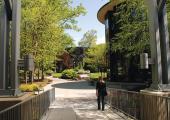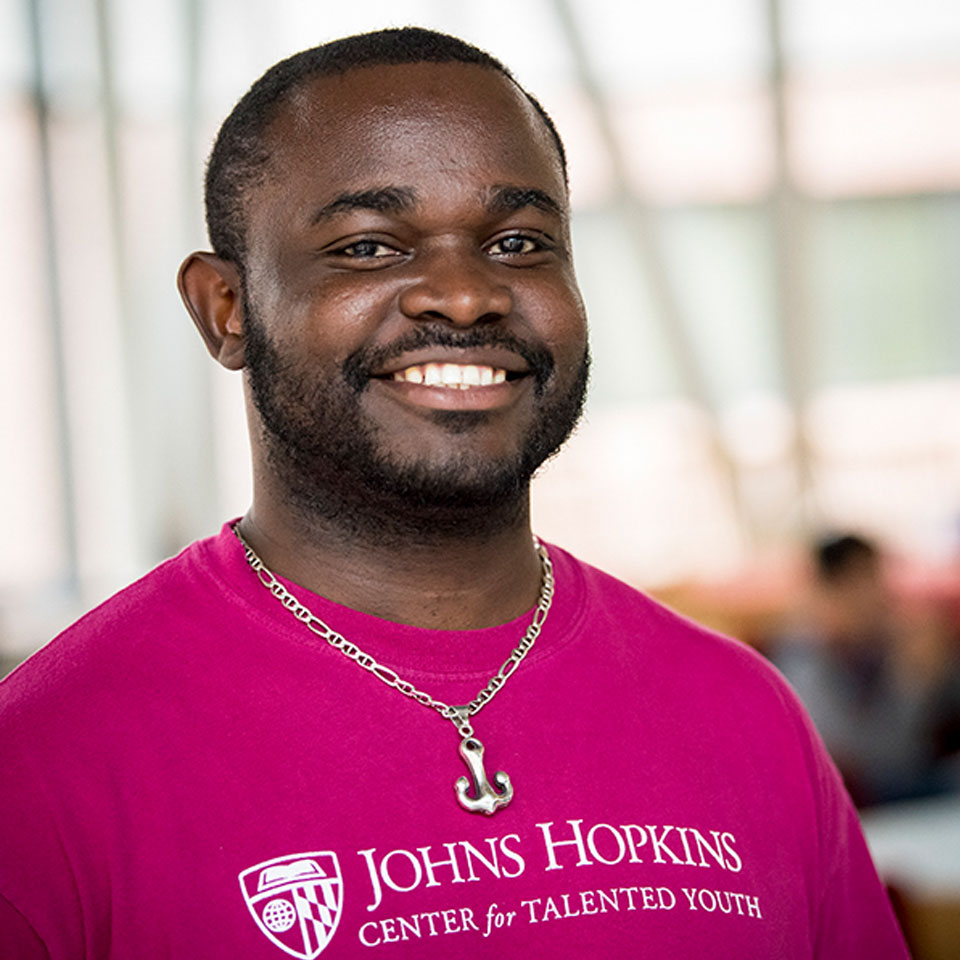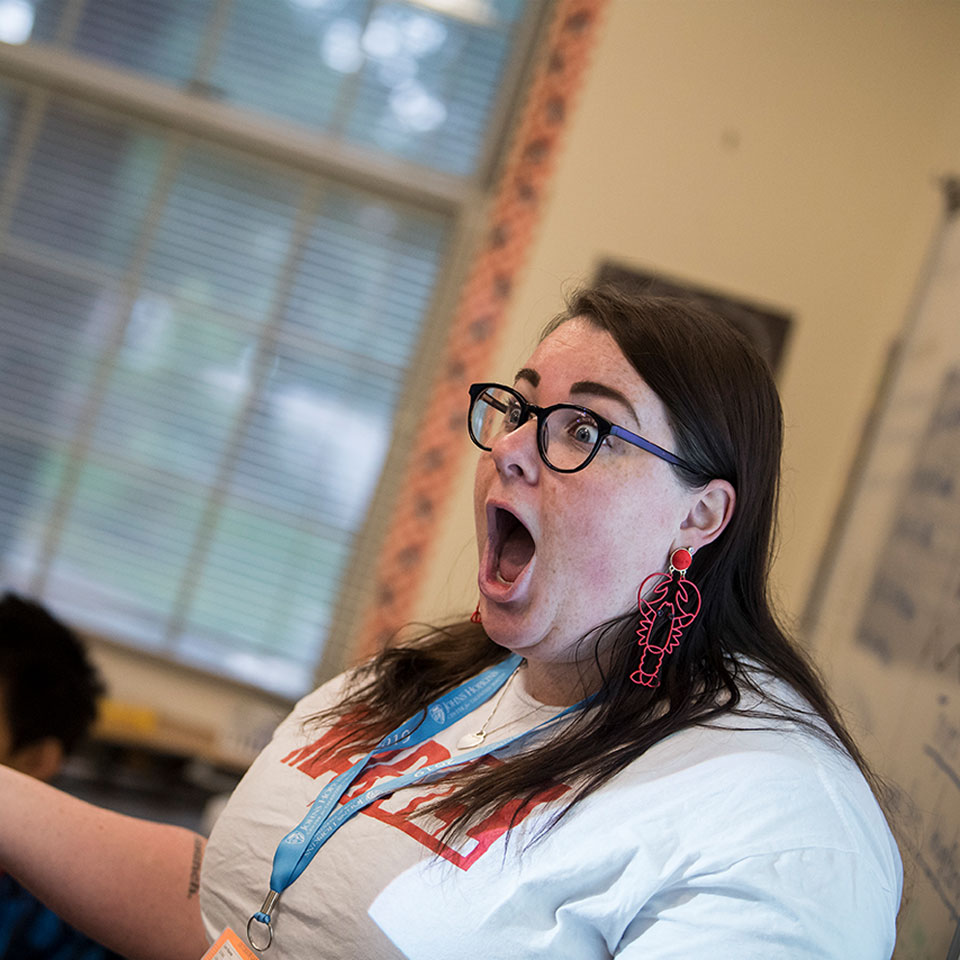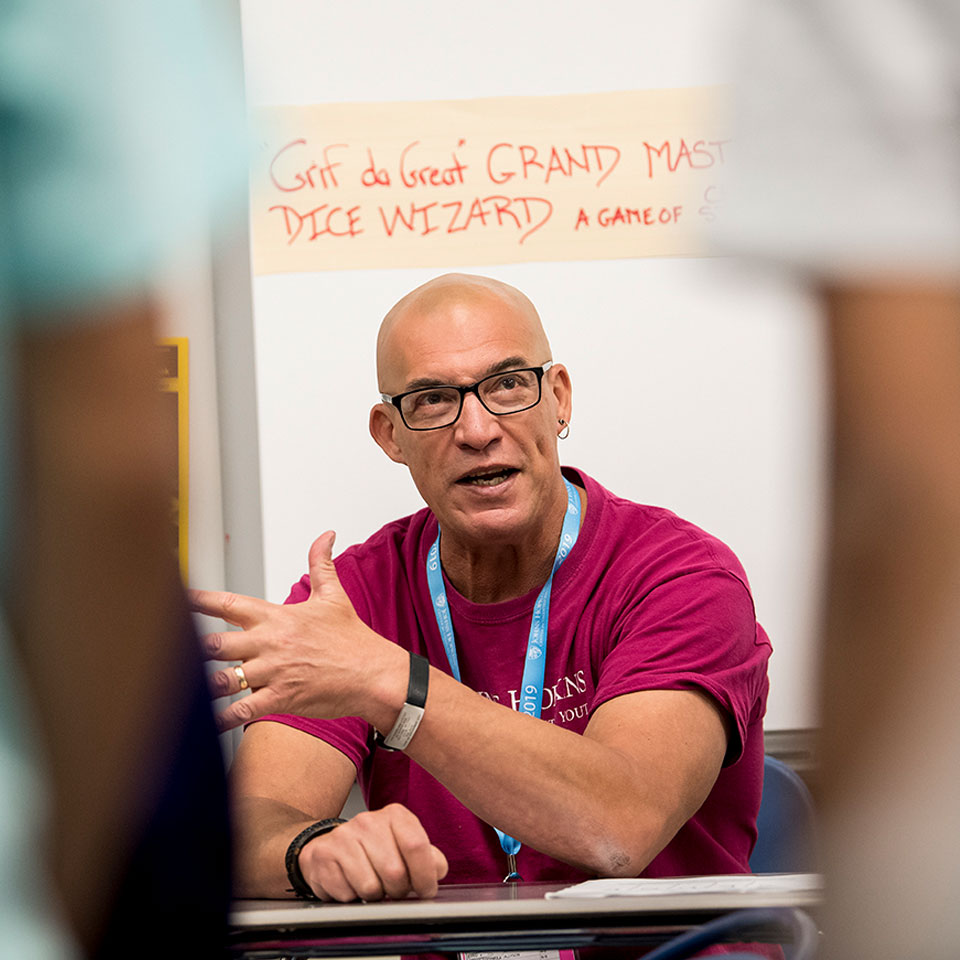Breadcrumbs
Cognitive Psychology
- Grades 7-11
- Advanced CTY-Level
-
Residential
- History and Social Science
While you read this sentence, your eyes alone are transmitting approximately 10 million pieces of data per second to your brain. Nevertheless, your attention remains focused on these words, you quickly decipher their meaning, and your memory stores make the whole process feel seamless. How is this possible? Cognitive psychology—often referred to as the “science of the mind”—examines how we represent and process information from our environment. It examines the diverse range of cognitive processes, including perception, learning, memory, forgetting, attention, problem-solving, reasoning, and language. You and your classmates will apply core research methodologies to models, principles, and discoveries within the discipline, and investigate the fundamental neurological structures associated with cognitive processes. Through simulations, group discussions, readings, and evaluation of research and theory, you’ll gain an understanding of the ways information is processed, and of your own cognitive illusions, predispositions, and capacities.
Typical Class Size: 16-18
This course is
ungraded.
Summer Dates & Locations
Session One


Session Two



Testing and Prerequisites
| Math | Verbal | |
|---|---|---|
| Required Level | Not required | Advanced CTY-Level |
Students must achieve qualifying scores on an advanced assessment to be eligible for CTY programs. If you don’t have qualifying scores, you have several different testing options. We’ll help you find the right option for your situation.
Sign up for Testing Learn MoreCost and Financial Aid
Tuition
- Varies
Application fee
- Nonrefundable Application Fee - $55 (Waived for financial aid applicants)
- Nonrefundable International Fee - $250 (outside US only)
We have concluded our financial aid application review process for 2025 On-Campus Programs. We encourage those who may need assistance in the future to apply for aid as early as possible. We are committed to serving all talented youth regardless of financial circumstances. Financial assistance is available based on need.
Course Materials
Students should bring basic school supplies like pens, notebooks, and folders to their summer program. You will be notified of any additional items needed before the course begins. All other materials will be provided by CTY.
Sample Reading
These titles have been featured in past sessions of the course, and may be included this summer. CTY provides students with all texts; no purchase is required.
- Cognitive Psychology: Connecting Mind, Research, and Everyday Experience, E. Bruce Goldstein.
About History and Social Science at CTY
Enhance your critical thinking skills
Expand your ability to reason through difficult problems by taking one of our philosophy or logic classes. Learn how to craft strong and clear arguments in Big Questions, or explore the techniques of logic that lawyers, doctors, and mathematicians utilize to be successful in their fields in Logic: Principles of Reasoning.
Explore social justice in action
Develop knowledge and skills that will help you address issues of systemic inequality throughout the world. Engage the historical and legal challenges different populations face in Great Cases and Laws and Orders.




